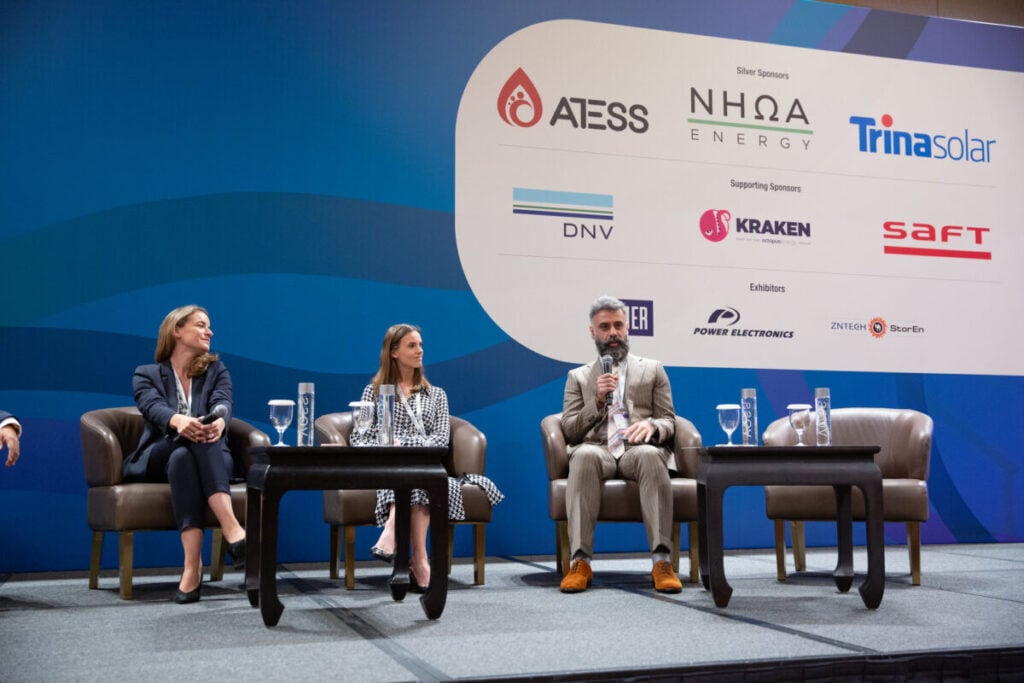
Dr Mahdi Behrengrad, head of energy storage at Pacifico Energy, speaks to Energy-Storage.news ahead of next week’s Energy Storage Summit Asia 2025 in Manila.
“We are all part of the same industry and sharing these kinds of learnings and pitfalls, based on real projects, rather than PowerPoints and guesses, it’s going to be very helpful in the long run,” Behrengrad says.
Dr Behrengrad says he plans to share practical lessons learned from developing energy storage projects in Japan’s complex regulatory environment in the panel discussion, ‘Proven storage deployment strategies from Singapore, Japan and Australia’.
This includes Pacifico Energy putting into action the country’s first-ever battery energy storage system (BESS) assets to participate in electricity trading markets, two years ago.
Try Premium for just $1
- Full premium access for the first month at only $1
- Converts to an annual rate after 30 days unless cancelled
- Cancel anytime during the trial period
Premium Benefits
- Expert industry analysis and interviews
- Digital access to PV Tech Power journal
- Exclusive event discounts
Or get the full Premium subscription right away
Or continue reading this article for free
The developer emphasises that it is crucial to treat energy storage projects as infrastructure developments, rather than speculative technology ventures. This approach necessitates extensive stakeholder engagement, particularly in the local communities where projects are located.
“It’s our job to make these packages so investable and so attractive as an infrastructure business and project,” he says, noting that this approach provides greater resilience against political changes and regulatory shifts.
Behrengrad advocates for a measured approach to market development, particularly in conservative markets like Japan where quality and reliability are paramount. For Pacifico Energy, the move into energy storage came off the back of more than 12 years of developing solar PV plants in Japan.
He references the Japanese saying, “Ishibashi wo tatai te wataru,” meaning to knock the stones of a bridge before walking on them, as emblematic of the careful approach required for successful project development.
Caution required in ‘brutal’ market environments
While Japan’s energy storage market may present unique challenges, these can still offer valuable lessons for other markets in the Asia-Pacific region, especially those with significant government involvement in energy sector planning.
Behrengrad notes that Japan’s regulatory environment is characterised by rapid changes and complexity, with market dynamics that can shift significantly over short periods.
He cites the example of one area of Japan where ancillary service procurement was reduced to zero by the Ministry of Economy, Trade and Industry (METI). Regulatory volatility necessitates that developers develop robust risk management strategies and maintain flexibility in their business models.
It means that while the energy storage industry has been encouraged to invest in Japan by high ancillary services prices and the availability of long-term capacity market contracts through the new Long Term Decarbonization Auction (LTDA), entrants should exercise caution.
“Past price signals in Japan have absolutely nothing to do with future [revenue opportunities],” Behrengrad says, noting also that the market exhibits all the hallmarks of coming ‘boom and bust’ cycles, again meaning that careful navigation of the market is needed.
“Making money out of energy storage in Japan is a brutal job. It’s a difficult thing, and there are many, many pieces to be understood and done smartly in order to make sure you don’t fail,” Behrengrad says.
While he claims Pacifico Energy is confident in its ability to make a good business case for its energy storage investments in Japan and expects to make more project announcements later this year, he worries that projects or technologies that fail might cause the government to take a less supportive approach.
Despite acknowledging significant challenges in Japan’s energy storage market, Behrengrad’s perspective emphasises constructive solutions and learning opportunities.
The insights he plans to share at the Manila summit reflect broader principles applicable across Asia-Pacific markets: the importance of treating energy storage as infrastructure, building strong stakeholder relationships, maintaining flexibility in rapidly changing regulatory environments, and creating economically viable projects that can attract investment based on fundamentals.
“It’s a small world, and we will end up working with each other so I’m very much looking forward to in-depth discussions about how to make projects or how to de-risk the projects to be considered as an infrastructure package,” he says.
Our publisher Solar Media will host the Energy Storage Summit Asia 2025 next week (7-8 October) in Manila, Philippines. Please have a look at the official site for more information, including the full agenda and ticketing details. ESN Premium subscribers receive a special discount on this and all other Solar Media events.
